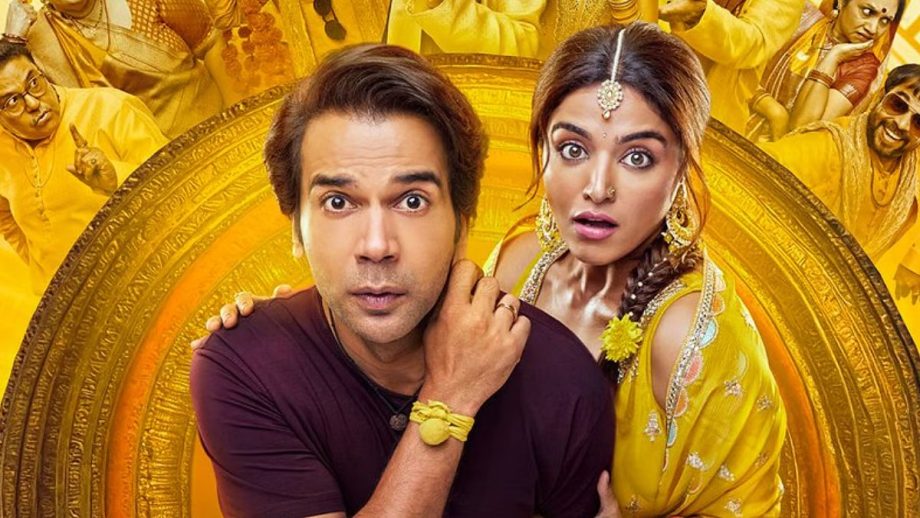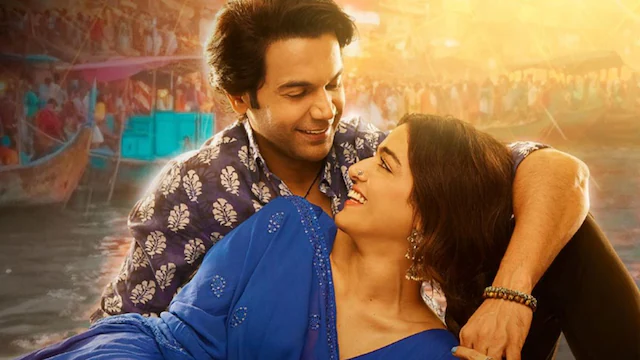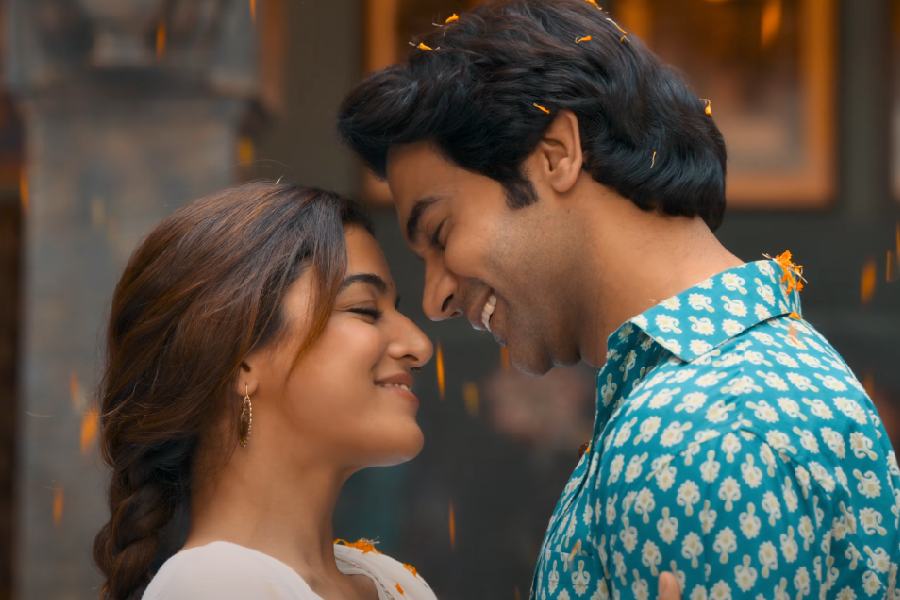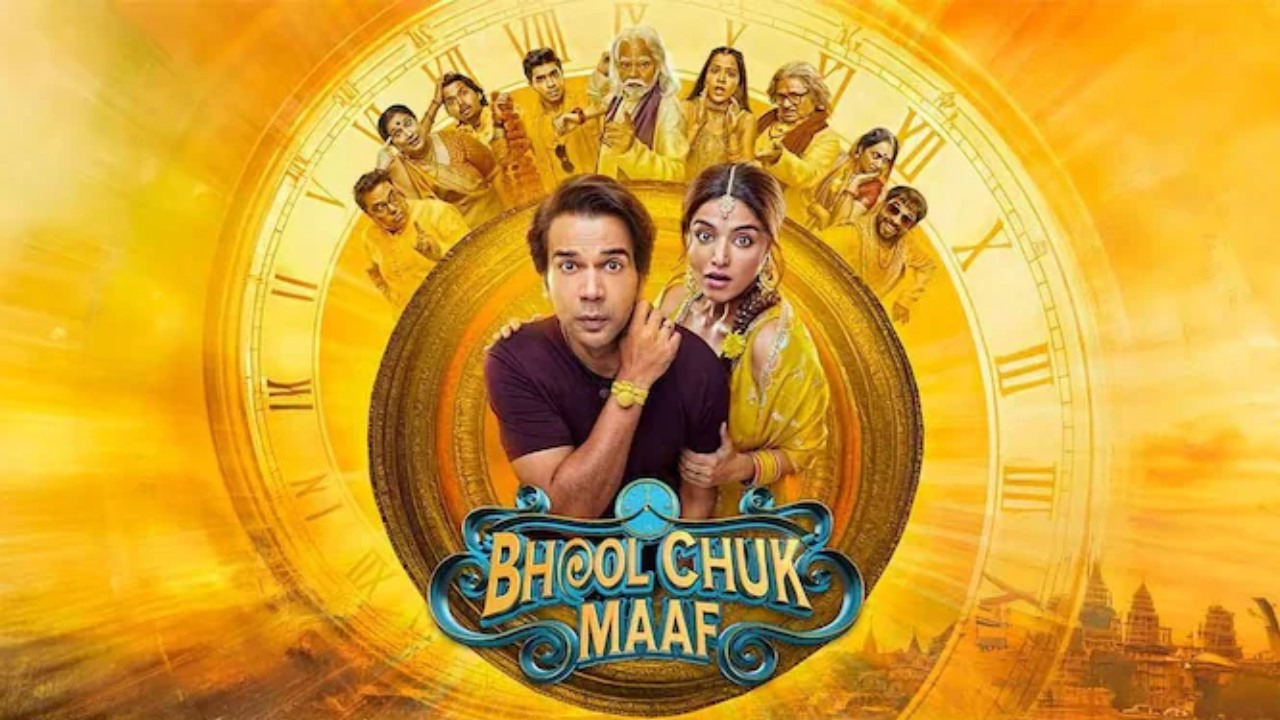Have you wondered what pattern recognition looks like? How hilariously terrifying can it become? You end up laughing in interludes, trying to find a dominion, only to realise the dominion isn’t outside this entire recognition but within.
Karan Sharma’s latest, Bhool Chuk Maaf, ventures into this dilemmatically cosmic time-loop genre and offers not just a light-hearted sci-fi romance but also a layered, spiritually-inclined meditation on growth, karma, and the unseen rhythms of life.

Sprouting from Varanasi, the heavy, spiritually potent city, Bhool Chuk Maaf builds its sci-fi premise in the lap of Indian tradition.
Ranjan Tiwari (Rajkummar Rao) is a small-town hopeful man, a government job aspirant, and a man-in-love who is on the cusp of matrimony. His life’s plan looks very sorted: to secure the job, marry his beloved Titli (Wamiqa Gabbi), and glide into this ever-domestic harmonic monologue. But the cosmos decides otherwise, as it often does in spiritual narratives.

Ranjan wakes up on the morning of his Haldi ceremony and continues to wake up on the same morning again and again. What begins as clumsy confusion soon evolves into existential questioning.
Why is this happening to him? What must he do to break the loop? And more importantly, who must he become?
Bhool Chuk Maaf overlays its cyclic storytelling with a deep-rooted Indian sensibility. This isn’t merely about escaping the loop but evolving through it.
In the grand tradition of karmic thought, the film posits that life may trap us in patterns not to punish but to purify. Ranjan’s repeated day becomes less of a curse and more of a crucible—an opportunity to dissolve ego, abandon selfishness, and evolve.
Rao delivers a performance that is both accessible and quietly profound. His comic timing remains sharp, but the subtle weariness that begins to set into his expressions—mirroring his inner awakening—forms the emotional backbone of the film. Opposite him, Wamiqa Gabbi’s Titli is earthy, strong, and industrious, serving not only as a romantic counterpart but also as a mirror to Ranjan’s unfinished self. Their on-screen chemistry feels organic, particularly in the film’s more absurd or tender moments—like a drunken confession or a morally dubious attempt at pawning family jewellery.

Where Bhool Chuk Maaf truly distinguishes itself is in its screenplay. Mythological references, particularly those hinting at Lord Shiva—the cosmic dancer who creates and destroys cycles—are artfully embedded, never loud or dogmatic. The film nurtures a concept deeply relevant to both spiritual seekers and thoughtful viewers: recognising patterns is the first step toward liberation from them. This idea, central to many meditative paths, is given narrative expression through Ranjan’s journey.
What keeps you hooked is to see the city becoming a character! The very textures of the town weave the narrative. However, Bhool Chuk Maaf occasionally stumbles in tonal cohesion. Its spiritual undertones are powerful, but the comedic beats—though largely effective—sometimes veer into excessive territory, dulling the film’s more contemplative aspirations. The resolution, too, while satisfying, may feel predictable to genre aficionados.
Nevertheless, this film dares to blend genre with philosophy and laughter with life lessons. It critiques societal obsessions, glorifying government jobs, and the undervaluation of entrepreneurial women like Ranjan’s mother.
Bhool Chuk Maaf invites viewers to laugh and introspect: What patterns are we stuck in? What lessons do we keep ignoring?
The film may not shatter cinematic paradigms. Still, it softens the heart, nudges the mind, and honours the ancient Indian idea that life is a school and every repetition is a reminder.
It’s a time-loop tale that believes not just in second chances but infinite chances—until we finally get it right.
IWMBuzz rates it 4 stars.

